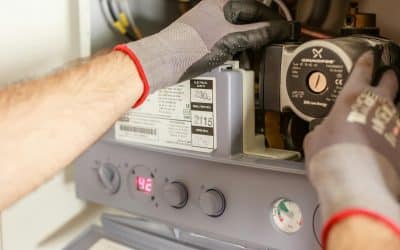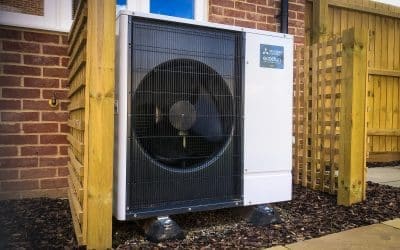The rules and regulations regarding Energy Performance Certificates (EPCs) are constantly updating, and you need to work accordingly. The latest requirement for EPC ratings was changed in 2018, making it necessary for all new tenancies to require a minimum EPC rating of “E” or higher.
However, in the following years, there have been several changes in the rules and regulations with regard to EPC for landlords. In this detailed article, the heating specialists at JL Phillips will talk about all the latest updates for EPCs and their renewal.
Before we dive in, a small reminder – to subscribe to our boiler upgrade scheme, it is essential to have a valid energy performance certificate. Don’t worry though; we’ll tell you how to get it today.
What is an EPC?
An Energy Performance Certificate (EPC) follows a rating scheme that measures energy efficiency. The property is rated on a scale of A – G to notify buyers or tenants regarding the energy efficiency of their property. As of 2007, EPC certificates are a legal necessity for anyone trying to construct, sell or rent out a building. This is exactly why an EPC for landlords is essential.
The Validity and Renewal of an EPC
Getting an EPC is easy and after you’ve received it, the next time you will need to renew it will be in ten years. Yes, that’s how long your EPC is valid. A good idea to get a better EPC rating the next time you renew your EPC is to refer to the previous EPC report. The report will list changes and improvements you can make to get a better EPC rating. All you have to do is make the suggested improvements, and there you have it. A much better EPC rating.
New and Upcoming Regulations regarding EPC for Landlords.
Here’s a list of all the rules and regulations related to Energy Performance Certificates that will come into action in the near future.
1. April 1st, 2023 (EPC Rating Changes)
Previously the minimum EPC rating required for all new tenancies was changed to “E” in 2018. However, from the 1st of April, 2023, this will be applicable for all existing tenancies as well.
This means that it would be illegal for all landlords to rent out or lease a commercial property with an EPC rating less than “E”
2. April 1st, 2025 to April 1st, 2027 (Compliance Window 1)
By the 1st of April, 2027, all landlords must present a valid Energy Performance Certificate for their property with an EPC rating of “C” or higher. If a landlord has an older EPC certificate that has a lower EPC rating, he is given a time window until April 1st, 2027.
In this time frame, it is imperative that a landlord make all the necessary improvements to the property and get an EPC rating of “C” or higher.
3. April 1st, 2028 to April 1st, 2030 (Compliance Window 2)
The government aims to lead the Green Industrial Revolution by reaching the goal of net-zero emissions by 2050.
To achieve the goal, it shall make it necessary for all property owners to submit an Energy performance certificate with a minimum EPC rating of “B” by the 1st of April 2028.
In case the EPC rating of a building happens to exceed the minimum requirements, the landlords will be instructed to make the required changes. Once the changes are made, they need to get an EPC rating of “B” or higher by the 1st of April, 2030.
However, in certain circumstances, the Government shall allow exemptions to all of the above requirements. To learn more about these exemptions, click here.
Furthermore, the Government shall also raise the penalty for not having a valid EPC certificate from £5000 to £30000 by 2025.
How Can One Prepare For The New Rules Concerning EPC For Landlords?
Well, it is obvious that getting an EPC rating of at least “C” and then “B” is not going to be easy. Therefore, you need to make efficient use of the resources available to you and make the improvements suggested in your EPC report.
Currently, the maximum amount one is allowed to spend on energy performance is capped at £3500. As the minimum required EPC rating increases, this cap shall be increased to £10000.
To provide some relief from the cost, the Government supports landlords with their Green Homes Grant. Under this grant, the government sponsors about two-thirds of the cost up to £5000.
Moreover, if your cost is much higher, you can also apply for a “High Cost” Exemption.
Contact JL Phillips For An Air Source Heat Pump Installation
Install an Air Source Heat Pump at your property and significantly enhance the energy efficiency of your place.
With our exceptional Air Source Heat Pumps, you can also make use of our brilliant boiler upgrade scheme and be the owner of an energy-efficient property.
With years of experience, we provide our customers with a professional and satisfying experience. We ensure that we meet all of your expectations in a timely manner and aim for ultimate customer satisfaction.
Moreover, with our brilliant maintenance and repair services, you will receive the most efficient professional service in the country.
To find out more about our services, get in touch with us today!





